Whether you are currently using Trinity, LAMDA, LCM or another exam board offering graded drama exams, it can feel overwhelming to switch. You might be concerned about the inconvenience it could bring to your staff, or the time it could take students to get used to a new syllabus. But if your current board is no longer offering you the variety, academic rigour or enjoyment it once did, it might be time to consider an alternative drama offer. So, how do you know what to look for when selecting a new drama exam board?
It could be that you require more contemporary pieces that better engage students? Maybe you want more variety of learning styles and teaching contexts? Or perhaps you seek more support and resources to make your job easier?
No matter what you need from a drama exam board, we believe Trinity College London can provide good support for drama at your school. Here is everything you need to know about Trinity's drama exam offer to help you decide if it’s right for your students.
'I love the Trinity approach. I remember one of their support team, when I attended initial training, said to me, "If a child comes to you with a passion for doing something, there is always a way of fitting it into an existing exam criterion." I love that attitude, as it's the antithesis of many of the more traditional, rigid exam boards.'
Susan Duncan – BSc ATCL, Head of Drama at Wisbech Grammar School
What makes Trinity drama unique? Discover how Trinity compares to other exam boards, from free choice of materials to showcasing wider theatrical skills in assessments.
With five engaging specifications to choose from, find the assessment that's right for your students, their skills and interests with our handy breakdown.
Whether it's the free Anthology, sample exam programmes, teaching guides and learner resources, or helpful webinars, the Trinity drama team is on hand to guide you.
.png)
What sets Trinity apart from other drama exam boards? We speak to many schools who have used alternative boards for years, and they tell us the reasons why they want to change – that’s why we’ve built our syllabus with the needs of a wide range of teachers and students in mind.
Many teachers tell us that they like the flexibility of Trinity's approach, which includes free-choice of repertoire. We offer a large range of exams options including face-to-face exams and Digital Grades & Diplomas for solo candidates across our whole range of drama syllabus specifications. There are options for pairs and groups - you can even have your whole production (including both cast and crew) assessed. Find out more about Trinity’s non-solo exam formats via our guide to delivering drama assessments for groups.
Below, we’ve outlined the points we think you’ll love about Trinity drama, and compared them to how some other drama exam boards structure their offering:
| Key features | Trinity drama exams | Other exam boards |
|---|---|---|
| Choice of texts | A free choice of material (yet with plenty of suggestions and support) and the ability to choose a programme that matches your curriculum and performers’ strengths. | Some boards require teachers to buy a book of set texts, which tend to be traditional options and may not always have relevance to students’ wider learning, contexts or interests. |
| Varied drama content | The Trinity Performance Arts syllabus is the only one of its kind, celebrating wider theatrical skills such as mask work, movement, costume and set design and lighting – developing skills both on and off stage. | With a focus on more mainstream aspects of drama, other exam boards currently do not offer assessment of the full variety of skills required for some theatre roles. |
| Scope of musical theatre | The Musical Theatre syllabus offers all three strands of musical theatre – singing, acting and movement – in one qualification. | Often, musical theatre exams only assess singing, or singing and acting, which are not representative of the variety of skills required by the industry, and possessed by many students. |
| Preparation for employment | The specifications are designed to be relevant to the professional performing arts world. Trinity’s authentic approach to syllabus design provides students with real-world skills they can translate directly into a rehearsal room, use in their wider education or in their future careers. Offering Professional Performing Arts Diplomas alongside graded exams, provides a unique perspective that complements Trinity's long heritage in performing arts assessments. | Many other boards do not express how their offer is explicitly focussed on equipping learners for future employment. |
| Teaching and learning contexts | The ability to learn – and be assessed – in a range of settings to suit the teacher and students, from solo, to pair and group exams and even whole performances (cast and backstage crew). These options are available to fit around schools’ and learners’ preferences – easily mapping into a curriculum design and preparing students for GCSE, BTEC and A-Level performances with group exams. | Other exam boards offer a structure that isn’t as flexible to schools, teachers and student strengths. In many cases students must be graded according to a solo performance; paired and group work is not recognised by all boards at all levels. |
‘We regularly get feedback that our students are extremely well-prepared for auditions and generally display a very mature outlook to the whole process.’
– Graham Dickie MBE, Artistic Director of Musical Theatre, The Dance School of Scotland
.png)
Trinity’s drama exams are subdivided into five diverse specifications. Available from Initial to Grade 8, the graded exams that fall under each specifications cover the full range of performance skills that are relevant to the discipline. This means that no matter what drives your students, or what expertise your staff has, there are qualifications to suit your school.
Working towards Trinity drama exams offers your students excellent preparation for success in 21st century life, developing communication, confidence and creativity, plus other skills such as teamwork and resilience.
Find out more about each exam below:
Practical acting skills for aspiring performers
Students are encouraged to develop a range of vocal, physical and characterisation skills that actors use to create successful performances.
The Trinity Acting exams are for learners who want to:
What sort of tasks will they undertake?
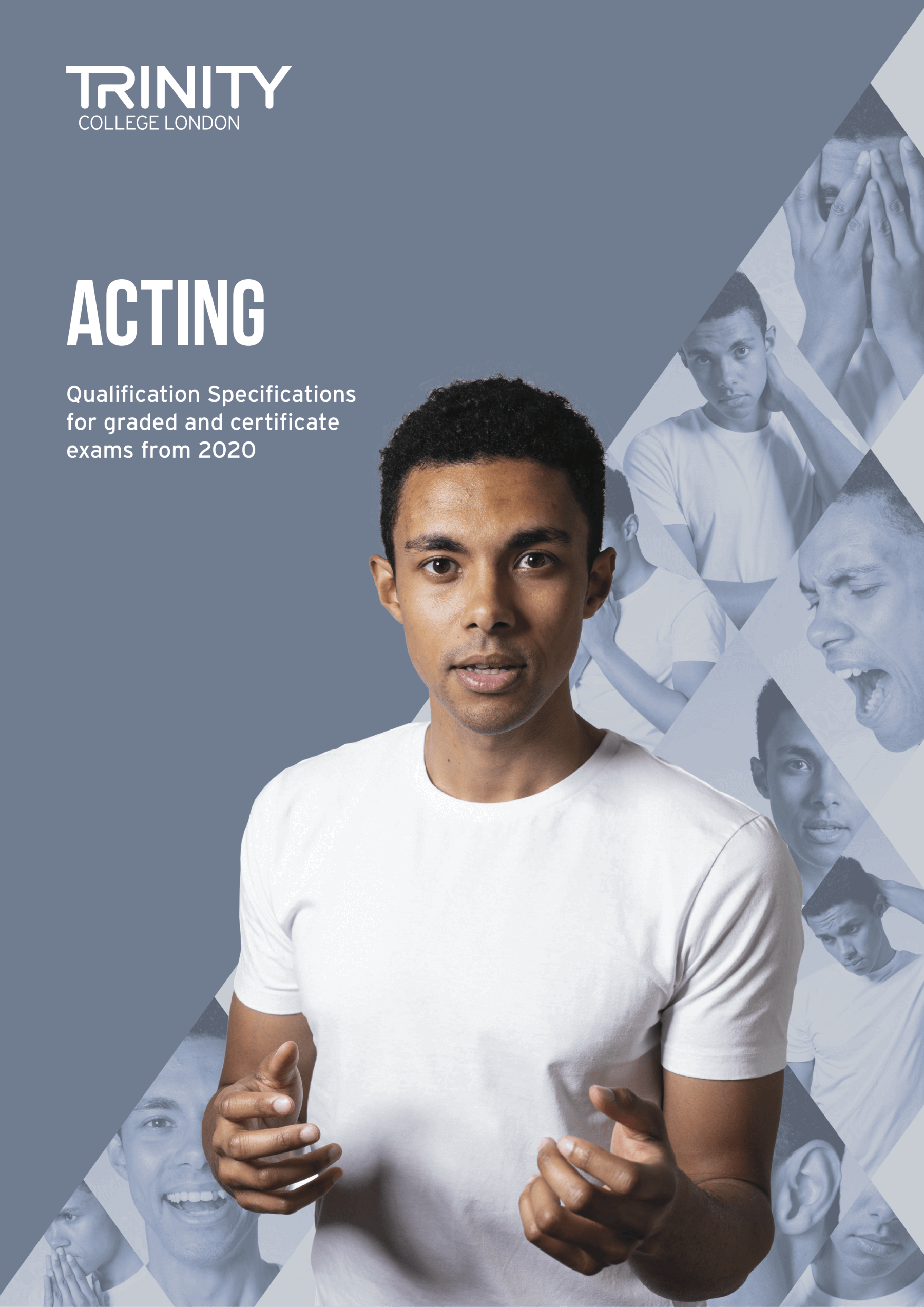
Combine acting, song and movement through performance
Students are encouraged to integrate acting, singing and movement to become an all-round performer through the performance of published works of musical theatre.
The Trinity Musical Theatre exams are for learners who want to:
What sort of tasks will students undertake?
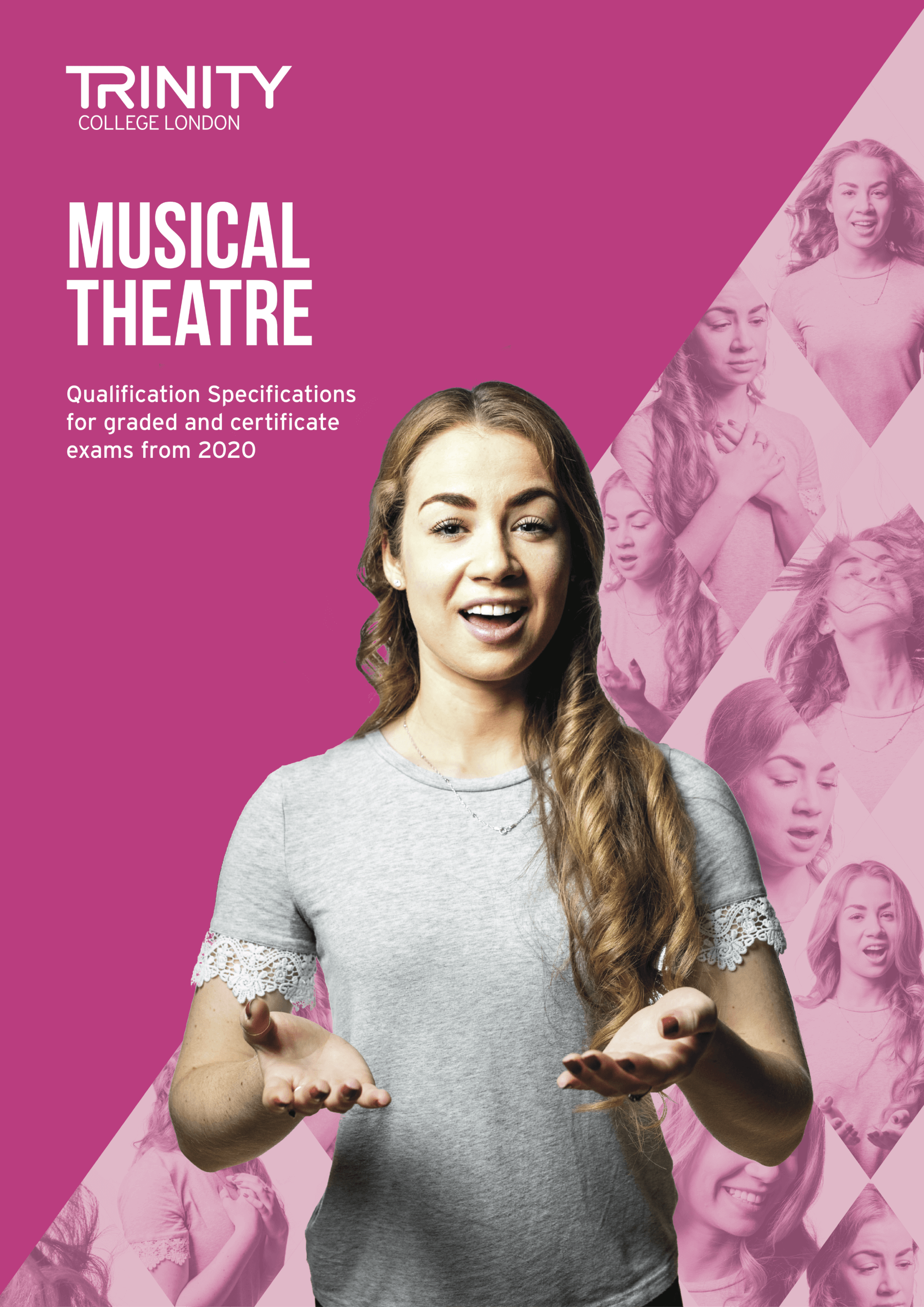
Bring text to life
Students are encouraged to develop their skills by engaging with a variety of literary and performance forms, including poetry, prose and play extracts in a range of styles from different periods.
The Trinity Speech and Drama exams are for learners who want to:
What sort of tasks will students undertake?
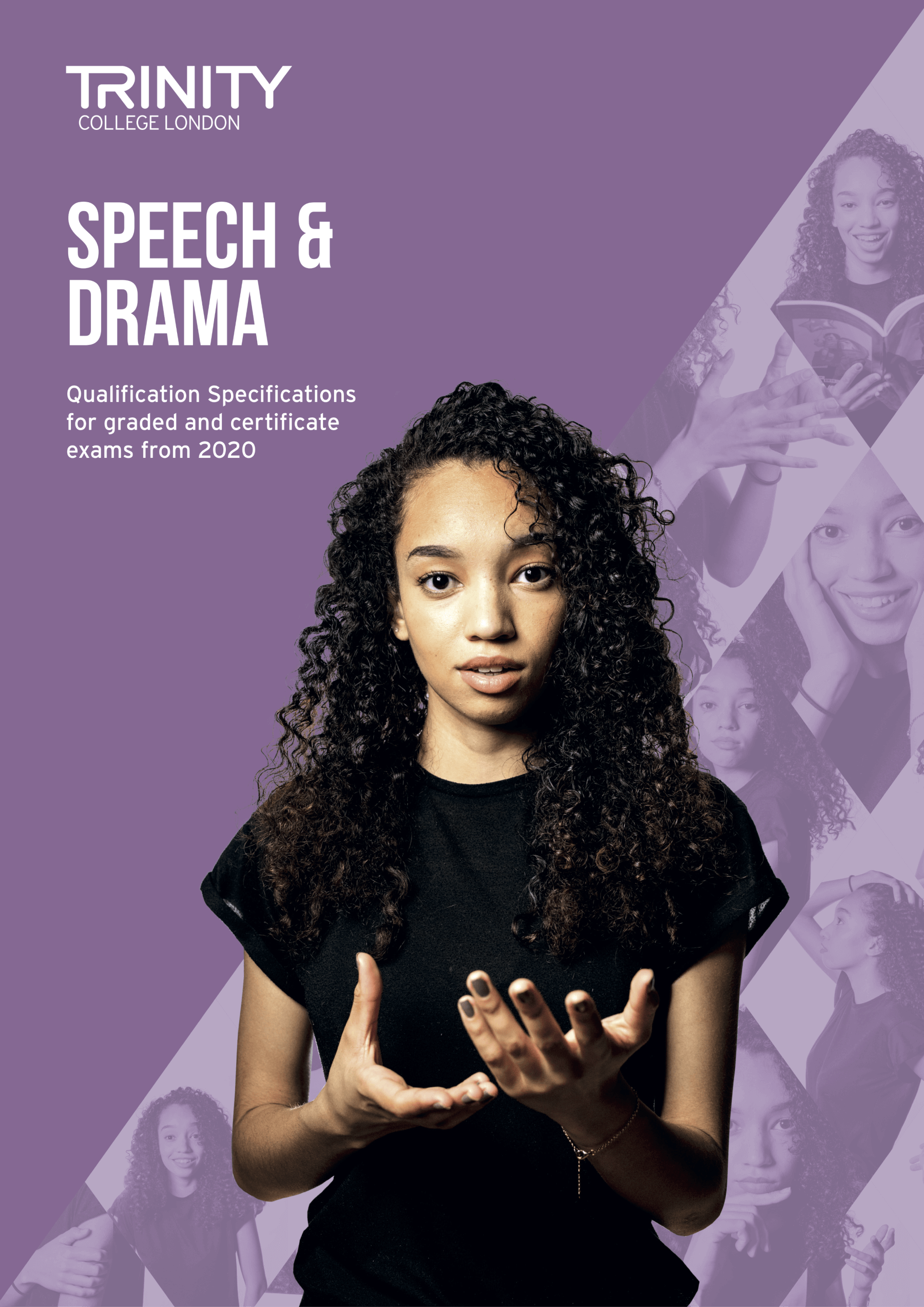
21st century skills for confident communication
Students are encouraged to develop a range of life-long transferable communication skills, including problem-solving, creative thinking, teamwork and organisational skills.
The Trinity Communications Skills exams are for learners who want to:
What sort of tasks will students undertake?
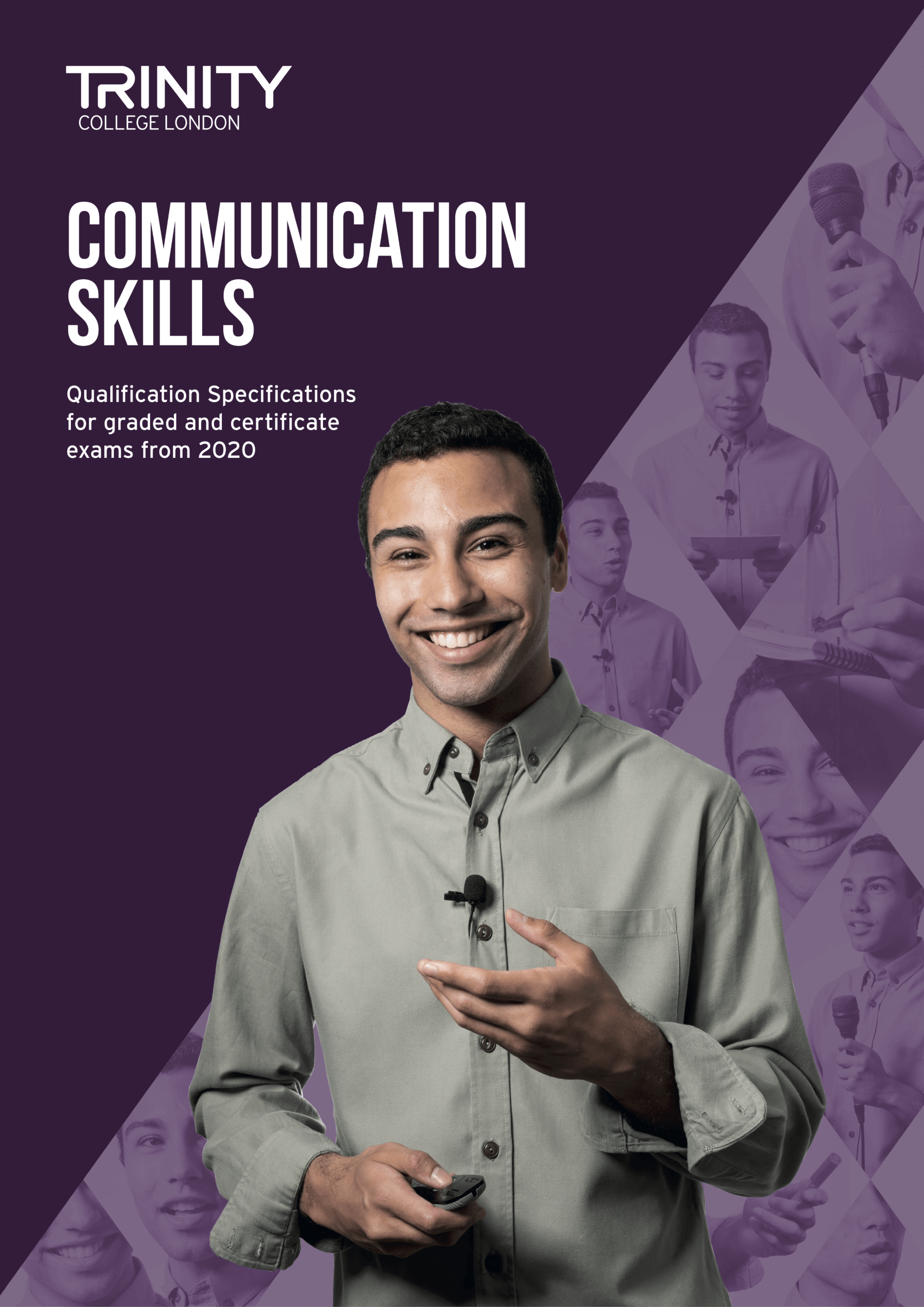
Explore the diversity of contemporary theatre-making
Students are encouraged to demonstrate their skills in the imaginative and creative exploration and integration of different performance forms and materials.
The Trinity Performance Arts exams are for learners who want to:
What sort of skills could learners use?
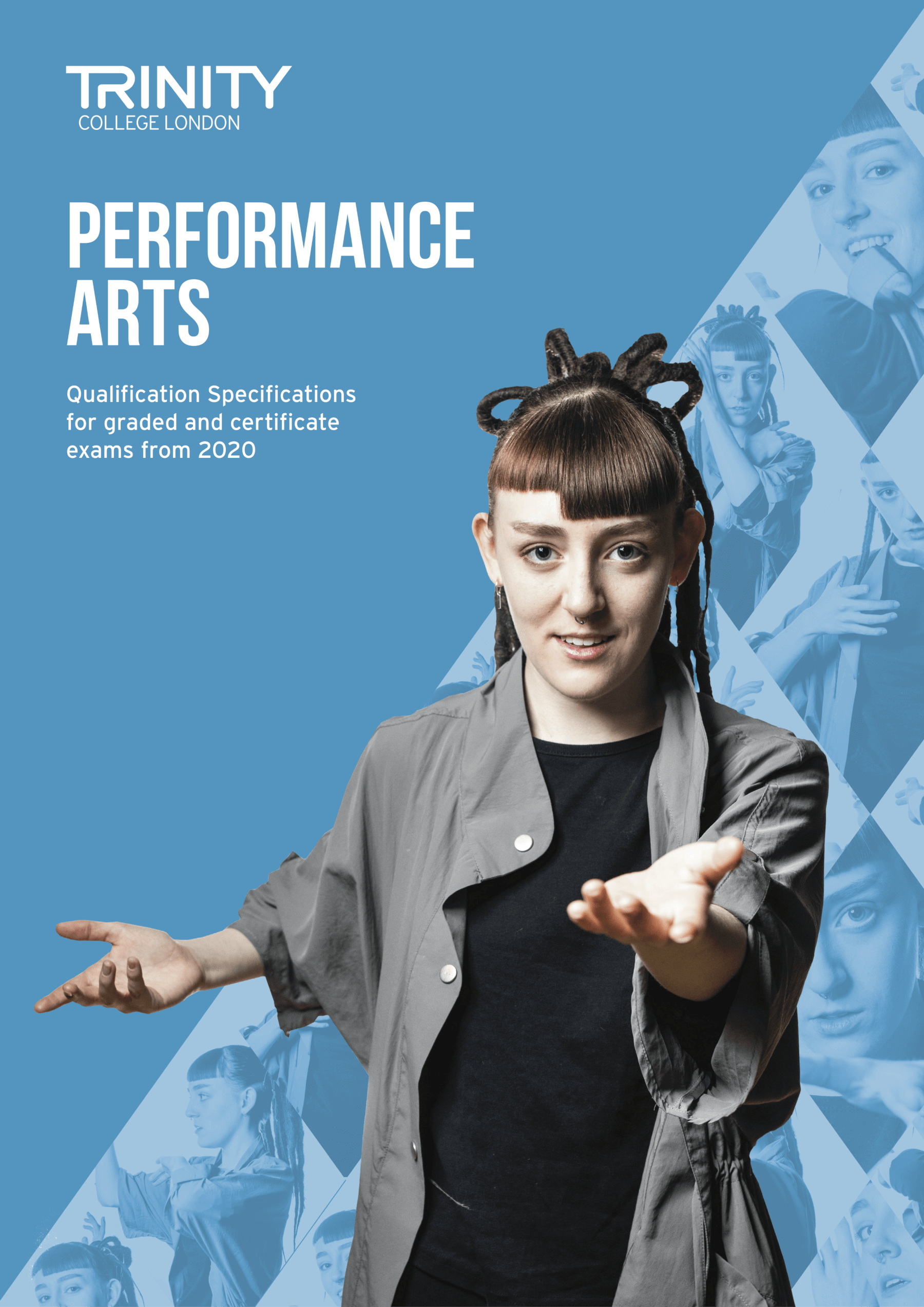
'I have a great respect for the Trinity syllabus, which will guide my teaching through all age groups. The framework works well with the existing planning and delivery of my teaching at all levels.’
John Howard, Director of Aspire Academy
Mighty Fine School
.png)
When preparing students for exams, you need to be confident that your exam board will be on hand to support you with advice, teaching materials and delivery suggestions.
Trinity’s online drama resources and webinars are available to offer actionable suggestions (webinars are designed for the UK & Ireland but all are welcome to join or watch-back the sessions). Additionally, Trinity's Anthology offers text ideas for each syllabus to help you get started.
A great place to start, our online Anthology gives you text suggestions – but remember you can choose your own material for all of our exams, too. The selection includes work by contemporary, diverse and international writers.
You can use the individual grade guidance in each specification to help you choose a suitable text for each level, or if you’d like to suggest your own text, a member of the Trinity team will be able to help you make sure your choice is suitable.
If you would be interested in getting a flavour of the pieces available in Trinity's Anthology, you can download a free sample booklet.
Further help in selecting motivating programmes for candidates is available via our Programme Examples. These resources offer ready-made programmes for Trinity’s Acting, Musical Theatre and Speech & Drama specifications and are designed to streamline the process of sourcing suitable exam pieces.
Diverse repertoire suggestions are included for each Solo grade (from Initial to Grade 8) along with ‘top tips’ and useful insights into the examination process.
Access Programme Examples for Acting, Musical Theatre and Speech & Drama.
Our online teacher and learner support page has over a hundred digital drama resources, including:
Webinars are an engaging and enjoyable way to learn, grow your confidence and ask questions. Whether you take part in upcoming live discussions, or watch recordings back later to fit around your workload, Trinity offers a range of webinars to help you get started.
Hosted by Trinity drama experts and featuring a range of guests, such as specialist drama consultants, the Lead of Academic Drama and Performance for Europe and the Lead Senior Examiner, these sessions give you real insights into how to deliver Trinity drama.
Our pre-recorded webinars for teachers in the UK and Ireland include an Introduction to Trinity's Drama Digital Grades & Diplomas, along with individual webinars on each specification.